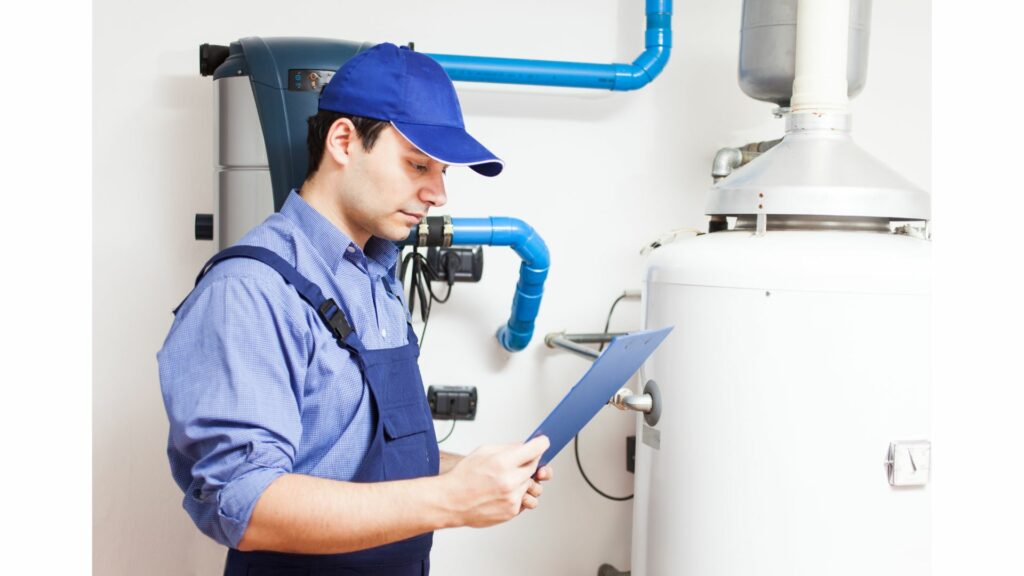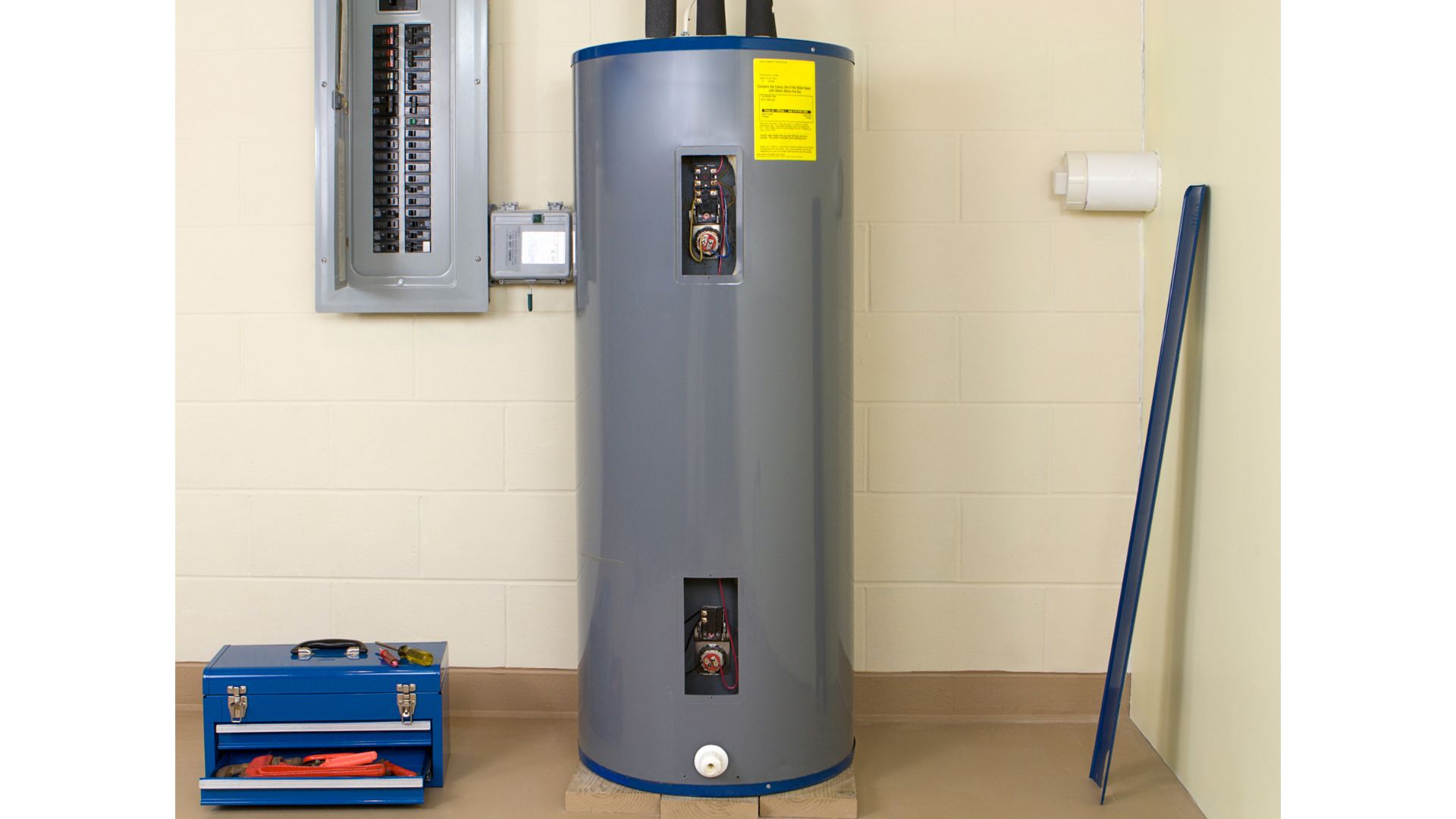240V sounds like the obvious voltage for water heaters, but is that true? Is 110V a viable option? The guide below will tell you.
Are Hot Water Heaters 220 or 110?
Water heaters use a dedicated 240V circuit with a 30A double-pole breaker and 10-2 wiring. But that is only true in some situations. Manufacturers make both 120V and 240V heaters. 240V units are larger and more powerful. 120V heaters are smaller. Your selection will depend on the following factors:
1). Location
Where do you live? Some countries use 240V electrical systems. Therefore, most of their appliances are rated for 240V. Countries with 120V systems are the reverse. For instance, many devices in the United States run on 120V because most residential settings in the US use 120V.
However, you can still install a 240V system by combining the two 120V legs. The location won’t limit you to a specific voltage. You can find workarounds. That said, it is common practice to match the heater’s voltage to your country’s voltage.
2). Installation
How will you power the heater? Do you prefer to plug the appliance into a wall outlet? A 120V heater may work for you. This isn’t always the case. You can install a 240V outlet. However, if you have a 120V circuit in your house, it is more convenient to buy a 120V appliance because it allows you to rely on the pre-existing 120V outlets in your home.
But if you’re going to hardwire the appliance, 240V makes more sense. Power in the US enters your house via two 120V legs. Combining those legs makes 240V available.
3). Availability
Some people don’t have a choice in the matter. They only have 120V water heaters in their local stores. Others are the opposite. They only have 240V units at their disposal. But again, you can find a workaround regardless of the voltage rating on the market.
Consult a contractor. They will advise you accordingly. A professional can make modifications to your circuit or heater to accommodate your limitations.
Why Do I Need To Know Whether Water Heater Is 220 Or 110V?
Knowing the heater’s voltage rating allows you to pair the heater with the correct electrical system. In other words, you can connect a 110V appliance to a 110V circuit and a 220V unit to a 220V system.
If you don’t know the voltage, you may create situations of over voltage or under voltage where the voltage is too high or too low. You can tolerate under voltage because it won’t destroy the appliance.
Instead, the heater will take more hours to warm the water. But that is an inconvenience, and you can avoid it if you identify the heater’s voltage ahead of time. Knowing the heater’s voltage gives you options.
For instance, if you have a 220V water heater and a 120V circuit, I suggest you use a step-down transformer. A step-down transformer allows a 220V appliance to run safely on a 120V system.
How To Tell If Hot Water Heater Is 110 Or 220V?

Water heater’s label. This plate shows you the upper element watts, lower element watts, total watts, phase, manufacture date, and voltage. Every new water heater comes with a label revealing the specs.
A simple glance at this information will tell you the voltage. Older units are tricky because these labels will fade over time. This is why it helps to keep the manual. You never know when you will need it. Manuals contain all the information you find on the label.
The next best option is the manufacturer’s website. If you know your heater’s brand, visit the official platform and search for the model. Manufacturers publish manuals for their appliances on the internet because they know that many consumers throw the physical document that accompanies their heater away once they install the machine.
If you engage a customer support agent, they will ask you to provide the serial number. This allows them to identify your model. But what if you can’t access the internet or a manual? Use the following steps to test the voltage with a multimeter:
- De-energize the circuit. You don’t want to tamper with a water heater on a live circuit.
- Use a non-contact voltage tester to confirm that the power is off. Apply the voltage tester to the clump of wires at the top of the appliance. The tester will beep if it detects a current. It will remain silent if the water heater is depowered.
- Find the water heater’s wires behind the access panel. This means removing the metal plate and pulling out the insulation. Check the manual to confirm the location of the panel and the best way to access it.
- Turn the power to the water heater back on.
- Get the multimeter and adjust the voltage setting upward until it exceeds 240V. For instance, you can switch it to 600V.
- Connect one end of the probes to the multimeter. The red probe goes to the ‘V’ port. The black probe runs to ‘COM.’
- Connect the other end of the multimeter’s probes to the screws in the access panel. Press each probe against the topmost screw. The order doesn’t matter.
- Don’t forget that you turned the power back on. Don’t touch any metal components. Otherwise, you will get a nasty shock. Wear insulated shoes and gloves. Many contractors use insulated tools to make this procedure as safe as possible.
- Check the readings on the multimeter’s display. They will show 120 or 240. This will show you the voltage.
Can You Run A 220V Hot Water Heater On 110V?
Yes, you can. However, a 110V system will give the heater only a quarter of the power it needs. The unit will still work, but it will take much longer to warm the water. For instance, if a 4500W 220V heater takes two hours to raise the temperature to satisfactory levels on a 220V circuit, it may take eight hours to achieve the same objective on a 110V circuit.
Voltage is typically compared to the pressure that forces water through a pipe. If you’re trying to fill a bucket, a lower pressure will increase the duration it takes to fill the bucket because you have less water flowing through the pipe. You can apply that analogy to a 220V heater on a 110V circuit.
What About Running A 110 Water Heater On 220?
A 110V heater is unlikely to survive on a 220V system. If you’re lucky, the heater will burn out quietly. But you’re more likely to observe an explosive reaction because you have significantly increased the power flowing to the heater.
However, this mixup is unlikely to happen because a 110V heater plug won’t fit a 240V outlet. They don’t have the same configuration. If you decide to hardwire the heater, you will spot your mistake early on when you open the electrical panel.
After all, you need to de-energize the circuit to install the heater. The panel will show you the mismatch in voltage, allowing you to remedy this problem before you start a fire.
Which Is Better: 110 or 220 Water Heater?
If you’re trying to connect a 110V unit to a 220V system or a 220V appliance to a 110V circuit, under-voltage is safer than overvoltage. Undervoltage means the heater doesn’t have the power it needs to run optimally.
The appliance will take more hours than usual to raise the temperature because the current at its disposal is insufficient. Overvoltage should scare you because it multiplies the power going to the heater. This can lead to burnout. Therefore, if you must choose between the two, connecting a 220V heater to a 110V circuit is better than running a 110V heater on a 220V circuit.
If you’re struggling to choose between 110V and 220V heaters, you can’t really go wrong with either option. This is what you should keep in mind:
- 110V and 220V appliances are equally efficient. It is a mistake to assume that you can lower your energy bill significantly by using 220V heaters instead of their 110V counterparts.
- That being said, 240V delivers twice as much power as 120V. You’ve probably noticed that 240V heaters are larger and more powerful than their 120V counterparts.
- 220-240V appliances use only half of the amperage of a 120V unit. But that doesn’t mean you’re getting 50 percent more efficiency.
Related post:

